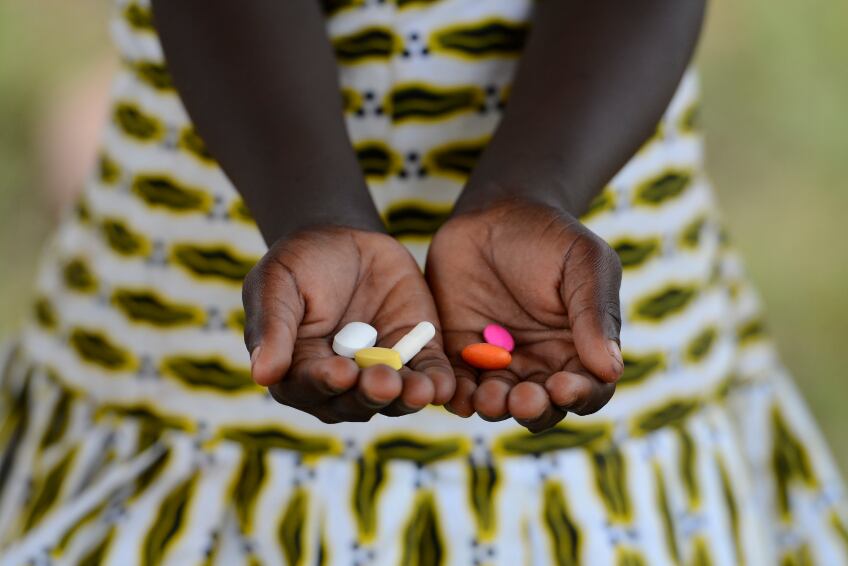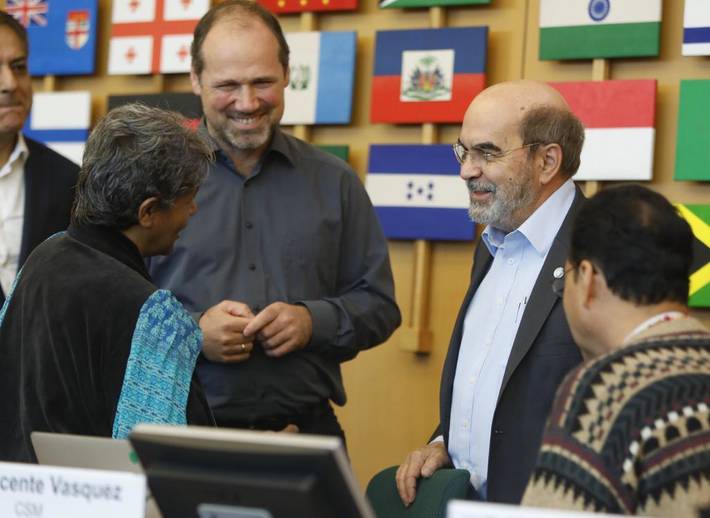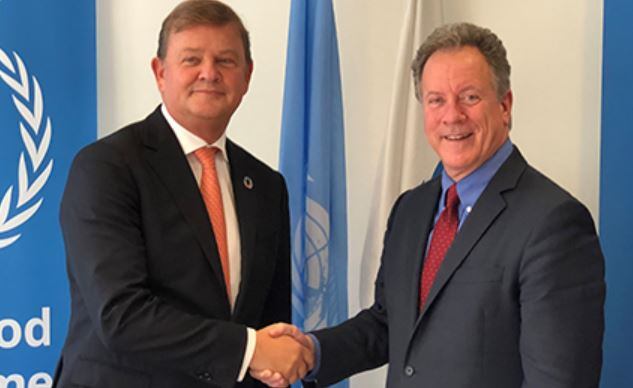In the study, the two DSM and Unilever-developed supplements, appeared to promote better growth, psychomotor development and iron levels in children from South Africa’s Jouberton community.
“The nutrient- and energy-rich paste used in the study was a complementary food supplement for infants older than 6 months, mixed into their homemade foods,” a spokesperson for DSM said.
“The supplement was slightly adjusted to the typical South African complementary staple food by adding a limiting amino acid to increase protein quality and by adding phytase to enhance iron absorption from the diet.
“Such supplement could support nutrition and development of all children of that age group, whereby it is recommended to make slight adjustment based on the protein profile of most commonly eaten staple food.”
Maize-based diet
The impact of SQ-LNSs in the context of a predominantly maize-based diet is an issue of particular relevance to populations living in Asia and Africa.
Here, the diets are predominantly plant-based, with high levels of antinutritional factors, and of low energy and nutrient density contributing to growth stunting and undernutrition in early childhood.
Research has shown that compared with rice or wheat, maize has higher levels of phytates, which bind trace elements such as iron and zinc and inhibit their absorption.
“After the age of six months, children need nutritious food to complement continued breastfeeding,” said professor Marius Smuts, lead study author and senior lecturer at North-West University in South Africa.
“However, older infants living in poorer communities often lack essential nutrients in their diet, as their complementary foods are made of staples like maize meal; contributing to their compromised linear growth and psychomotor development.”
Study details
The research team from DSM, Unilever, Global Alliance for Improved Nutrition, and North-West University enrolled 750 infants, who were then randomly assigned to receive SQ-LNS, SQ-LNS-plus, or no supplement.
Both SQ-LNS products contained micronutrients and essential fatty acids. SQ-LNS-plus contained, in addition, docosahexaenoic acid (DHA), arachidonic acid (important for brain and eye development), lysine (limiting amino acid in maize), phytase (enhances iron absorption), amongst other nutrients.
Infants’ weight and length were measured twice a month at age six and 12 months, psychomotor development, haemoglobin, plasma ferritin, C-reactive protein, and α1-acid glycoprotein were assessed.
WHO Motor Milestone outcomes, adherence, and morbidity were monitored weekly through home visits.
The study results showed that children who took the supplements had a better iron status at 12 months of age, in comparison to the control group.
Those taking the supplement containing, amongst others, long-chain omega-3 and -6 fatty acids also showed positive advancements in a number of important areas, such as linear growth at age 8 and 10 months and psychomotor development at 12 months of age.
Additionally, the children had enhanced omega-3 fatty acid status, which is associated with healthy eye and brain development.
“The paste is an ideal carrier to include all essential nutrients and, therefore, to address all nutrient deficiencies,” DSM’s spokesperson said.
“This multi-nutrient approach can improve the child’s status of multiple nutrients, including essential vitamins, minerals, lipids and amino acids (protein). By doing so, it can support the child’s physical, cognitive and motor development.”
DSM and malnutrition
DSM’s activities in addressing malnutrition follows its commitment to five of the United Nations Sustainable Development Goals (SDGs) that emerged from the 2016 Paris Agreement.
Such industry involvement is in contrast to a report produced by the Global Alliance for Improved Nutrition (GAIN) and the USCIB Foundation in April 2018 that called on the private sector to build on current efforts to address rising malnutrition rates.
“It is increasingly acknowledged that partnerships between governments, non-governmental organisations, academics, and the private sector are essential in the successful development and implementation of innovative solutions to address malnutrition,” said DSM.
“Public and private sectors can bring their complementary skills together to serve a common goal. This requires a lot of trust.
“The private sector has the scientific knowhow and expertise to formulate, produce, and package a nutritious, stable, safe, and appealing product and to tailor it to meet the growing child’s requirements. But private sector cannot act on their own and needs the expertise from the other partners.”
The private sector, governments and academics all have a vital role to play in addressing malnutrition, the spokesperson said. Many of those who work to improve people’s lives have seen business as part of the solution.
They added that non-governmental organisations (NGOs) like GAIN had also been working with private and academics to get more nutritious food into markets.
“This project is innovation at its best in terms of multi-sector partnership, research methodology and the approach used to address nutrient gaps among populations most at risk of stunting,” said Dominic Schofield from the Global Alliance for Improve Nutrition (GAIN).
“We are grateful to our partners and especially the proud people of Jouberton for their commitment and groundbreaking work.”
Source: The American Journal of Clinical Nutrition
Published online: doi.org/10.1093/ajcn/nqy282
“Testing of Two Types of Lipid-based Nutrient Supplements in South African Older Infants.”
Authors: Cornelius M Smuts, Tonderayi M Matsung, Linda Malan, Herculina S Kruger, Marinel Rothman, Jane D Kvalsvig, Namukolo Covic, Karen Joosten, Saskia JM Osendarp, Maaike J Bruins, Leon GJ Frenken, Carl J Lombard and Mieke Faber.




